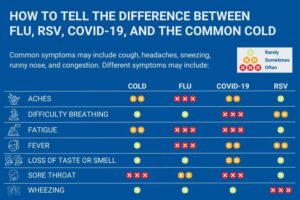Dry Mouth
Dr. Claire Arcidiacono, ND
Most people have had the sensation of a dry mouth in the past. Whether it be because you are thirsty or you have just woken up having that dry feeling in your mouth is not uncommon. However, having a clinical diagnosis of dry mouth is different. There are a number of distinct reasons that people may develop dry mouth. While you may not think so dry mouth can also have complications. Let us get into it, shall we?
When diagnosed with dry mouth, otherwise known as Xerostomia, there is chronic dry mouth that occurs because the salivary glands are unable to make enough saliva to lubricate the mouth. This lack of saliva can be a result of certain medications. These medications can include those that are used for depression, high blood pressure, anxiety, antihistamines, decongestants, muscle relaxants and even certain pain relievers. It is well known that chemotherapy and radiation treatment can affect saliva production and lead to dry mouth. In addition to proscription medications recreational drugs, alcohol and tobacco products can lead to dry mouth. Certain changes as we age can also lead to dry mouth. For example, in my clinical experience poorly fit dentures can lead to poor nutrition and this in turn can lead to dry mouth. Another aspect of aging that no one wants to talk about is snoring and mouth breathing. In my clinical experience and to be frank, just plain old life experience snoring is more common as we age. As you may expect snoring or mouth breathing both increase the risk of dry mouth. Anything that damages the nerves to the head and neck area can lead to dry mouth. In addition to anything that leads to damage to the nerves, anything that results in damage to the salivary glands themselves can lead to a reduction in saliva production. For example, radiation treatments can temporarily damage the salivary glands and lead to less saliva being produced. Lastly having certain health conditions can lead to dry mouth. For example, having diabetes, thrush, Alzheimer’s disease, or a prior stroke can lead to a dry mouth. Sjogrens syndrome, an autoimmune disease can cause dry mouth. Having HIV/AIDs can also increase the risk of dry mouth.
Now as I said, having a dry mouth can have complications. Well to start with a dry mouth can be uncomfortable. It can also affect how well you are able to eat. This can affect your nutrition and even lead to deficiencies in the long term. Dry mouth can affect the gums as well. This means it can increase the risk of plaque, gum disease and tooth decay. A dry mouth can lead to mouth sores, cracked lips and even sores or split skin at the corners of the mouth. Lastly dry mouth can increase the risk of developing thrush.
What are the symptoms of dry mouth? I bet I know what you are thinking, Dr. Claire, the symptoms of a dry mouth are obvious. It is a dry mouth with a sticky feeling. While it is true saliva is more than just a lubricant. It is an important part of our digestion. When there’s not enough saliva it can make it harder to taste, chew, swallow, speak or even to wear dentures. It can affect the entire digestive process. You may notice bad breath. The saliva you do have may seem thick and stringy. There may be a dry or sore throat, and you may be hoarse. You may even notice a change in how you perceive taste. Lipstick may stick to your teeth. Lastly changes to your tongue may include dryness or grooved tongue. (1)
What can you do?
Our next product highlight will be good old-fashioned Vitamin C!
Sources:
- https://www.mayoclinic.org/diseases-conditions/dry-mouth/symptoms-causes/syc-20356048
- https://ard.bmj.com/content/83/Suppl_1/1689.1
- https://www.nature.com/articles/s41598-019-54173-3
- https://pmc.ncbi.nlm.nih.gov/articles/PMC8254880/#:~:text=According%20to%20the%20results%20of%20this%20study%2C,promote%20oral%20health%20in%20patients%20with%20diabetes.&text=The%20results%20of%20a%20study%20by%20Mardani,the%20severity%20and%20symptoms%20of%20xerostomia%20(19).
- https://rheumatologistoncall.com/2023/02/13/best-vitamins-for-sjogrens-syndrome/#:~:text=Vitam
- https://www.augustachronicle.com/story/lifestyle/health-fitness/2014/07/23/green-tea-lozenge-helps-dry-mouth/14401816007/








